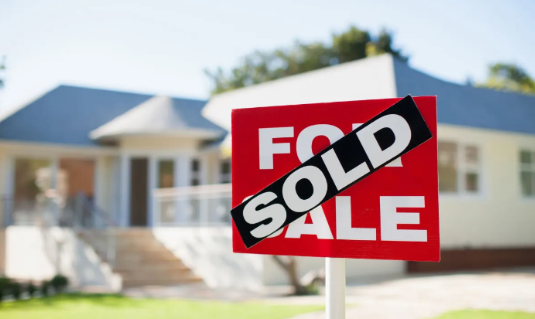
Extended Deadline for Opportunity Zone Investors
Extended Deadline for 2019-2020 Qualified Opportunity Zone Fund Investors: March 31, 2021
I. BACKGROUND
Existing federal regulations (Section 1400Z-2) provide that if a taxpayer has “gain from the sale… of any property held by the taxpayer”, the taxpayer may defer any gain invested by the taxpayer in a Qualified Opportunity Zone Fund (“QOF”) during the 180-day period beginning on the date of such sale. Under current rules, taxpayers investing in 2021 may defer such gains until December 31, 2026 and receive a 10% “step up” in basis for investments held for at least five years. Taxpayers investing in QOFs also receive a 100% “step up” in basis for their QOF investments held for at least 10 years, effectively eliminating federal taxes on any gains otherwise realized from the potential appreciation of a QOF.
Section 1400Z-2 requires that a QOF develop or substantially improve the underlying property within a designated Qualified Opportunity Zone (“QOZ”). It also requires a QOF to hold at least 90 percent of its assets in QOZ property; the rules include a “safe harbor” for maintaining a reasonable amount of working capital. To comply, there must be a written schedule for the expenditure of the working capital assets within 31 months of the receipt of funds. A QOF may extend the working capital safe harbor period to a maximum 62-month period if certain additional requirements are met. Furthermore, if the property is located within a Federally declared disaster area, it may receive up to an additional 24 months to expend its working capital assets. Therefore, a qualified opportunity zone business could potentially have up to 86 months to expend working capital assets.
If (i) a QOF sells or disposes of some or all of its QOZ property or if a distribution with respect to the QOF’s qualified opportunity zone stock is treated as a return of capital in the QOF’s hands, and if (ii) the QOF reinvests some or all of the proceeds in qualified opportunity zone property by the last day of the 12-month period beginning on the date of the disposition, then the proceeds are treated as QOZ property.
Under IRS Notice 2020-39, the deadlines for meeting the above 90% investment standard, working-capital safe harbor and 12-month reinvestment period were extended nationally under a Federally-declared emergency declaration (due to COVID-19).
II. NEW EXTENSION OF RELIEF
Under IRS Notice 2021-10, if the last day of the 180-day investment period falls between April 1, 2020, and March 30, 2021, investment deadline is postponed to March 31, 2021. This relief is automatic—taxpayers do not have to call the IRS or send letters or other documents to the IRS to receive this relief. However, a taxpayer must make a valid deferral election in accordance with the instructions to Form 8949, complete Form 8997, and file the completed Form 8949 and Form 8997 with a timely filed Federal income tax return (including extensions) or amended Federal income tax return for the taxable year in which the gain would be recognized if section 1400Z-2(a)(1) did not apply to defer recognition of the gain. For additional information, see https://www.irs.gov/form8949 and https://www.irs.gov/form8997.
In addition, for QOFs, the “substantial improvement period” is tolled during the period beginning on April 1, 2020, and ending on March 31, 2021, and the deadlines for meeting the above 90% investment standard, working-capital safe harbor and 12-month reinvestment period were extended again under IRS Notice 2021-10.
Sources:
IRS Notice 2021-10
26 USC §1400Z-2
For more information about passive replacement investments, please call 1031 Capital Solutions at 1-800-445-5908 or visit our website, 1031capitalsolutions.com.
There are material risks associated with investing in QOF properties and real estate securities including liquidity, tenant vacancies, general market conditions and competition, lack of operating history, interest rate risks, the risk of new supply coming to market and softening rental rates, general risks of owning/operating commercial and multifamily properties, short term leases associated with multi-family properties, financing risks, potential adverse tax consequences, general economic risks, development risks, long hold periods, and potential loss of the entire investment principal. Past performance is not a guarantee of future results. Potential cash flow, returns and appreciation are not guaranteed. Tax deferralis a complex tax concept; consult your legal or tax professional regarding the specifics of your particular situation. This is not a solicitation or an offer to sell any securities. QOF programs are only available to accredited investors (typically have a $1 million net worth excluding primary residence or $200,000 income individually/$300,000 jointly of the last three years) and accredited entities only. If you are unsure if you are an accredited investor and/or an accredited entity please verify with your CPA and attorney. Because investor situations and objectives vary, this information is not intended to indicate suitability for any particular investor.
Securities offered through Concorde Investment Services, LLC (CIS), member FINRA/SIPC. Advisory services offered through Concorde Asset Management, LLC (CAM). 1031 Capital Solutions is independent of CIS and CAM.
This information is for educational purposes only and does not constitute direct investment advice or a direct offer to buy or sell an investment, and is not to be interpreted as tax or legal advice. Please speak with your own tax and legal advisors for advice/guidance regarding your particular situation. Because investor situations and objectives vary, this information is not intended to indicate suitability for any particular investor. The views of this material are those solely of the author and do not necessarily represent the views of their affiliates.
Investing in real estate and 1031 exchange replacement properties may involve significant risks. These risks include, but are not limited to, lack of liquidity, limited transferability, conflicts of interest, loss of entire investment principal, declining market values, tenant vacancies, and real estate fluctuations based upon a number of factors, which may include changes in interest rates, laws, operating expenses, insurance costs and tenant turnover. Investors should also understand all fees associated with a particular investment and how those fees could affect the overall performance of the investment.
Securities offered through Concorde Investment Services, LLC (CIS), member FINRA/SIPC. Advisory services offered through Concorde Asset Management, LLC (CAM), an SEC registered investment adviser. Insurance products offered through Concorde Insurance Agency, Inc. (CIA). 1031 Capital Solutions is independent of CIS, CAM and CIA.
continue reading
Related Posts
Changes are Happening Quickly – Don’t be Left Behind Managing […]
The Burdens of Managing Rental Property in Retirement Retirement should […]
Trusts, Partnerships and 1031 Exchanges One crucial aspect of real […]











